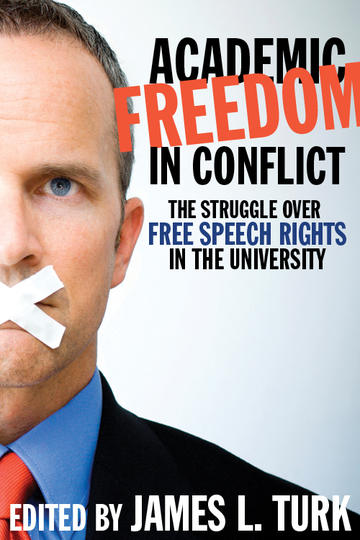For more than a century academics have had unique rights -- to speak, teach, and write freely. Central to the case for academic freedom is that scholars must be able to voice their views free of fear in order for society to gain a better understanding of ourselves and our world and to be effective teachers.
Academic freedom has always faced challenges. Professors have been pressed to alter their work because it offends powerful interests -- both inside and outside the university. Some have been fired or denied jobs for their political views, their criticisms of colleagues and administrators, and their refusal to buckle under corporate pressures to hush up research findings. The sixteen contributors to this volume cite many such instances in Canada and the U.S. More significantly, they point out how governments, corporations, and university administrators today are seeking to narrow academic freedom. Among them:
- Major donors are acquiring control over university teaching and even hiring decisions
- University administrators are firing professors with unpopular political views, while pretending that the reasons for their decisions lie elsewhere
- Governments are using funding mechanisms to force-feed research in some areas, while shutting down inquiry in others
- Campus-wide policies enforcing civility rules are preventing criticism and debate within a university
- Judges are issuing decisions which reverse previous rulings supporting academic freedom in the U.S. and Canada
Together the contributors to this book examine attempts to restrict academic freedom and explore its legitimate limits.
The sixteen contributors to this book include many distinguished Canadian and U.S. scholars who have a special interest in academic freedom.
The editor of this book, JAMES L. TURK, is Executive Director of the Canadian Association of University Teachers. He is a frequent media contributor and has written many articles on education and labour in Canada. Turk has edited several other titles dealing with academic freedom, including Universities at Risk: How politics, special interests and corporatization threaten academic integrity; Free Speech in Fearful Times: After 9/11 in Canada, the U.S., Australia and Europe; and Disciplining Dissent: The Curbing of Free Expression in Academia and the Media. With co-editor Charis Wahl, he created a memoir of NDP leader Jack Layton which was published as Love, Hope, Optimism: An informal portrait of Jack Layton by those who knew him. James Turk lives in Ottawa.
THE CONTRIBUTORS: John Baker, University of Calgary; William Bruneau, professor emeritus, University of British Columbia; Jamie Cameron, Osgoode Hall Law School, York University; Len Findlay, University of Saskatchewan; Matthew W. Finkin, University of Illinois; Mark Gabbert, University of Manitoba; Gerald Gerbrandt, professor emeritus, Canadian Mennonite University; Sheldon Krimsky, Tufts University; Risa L. Lieberwitz, Cornell University; Richard Moon, University of Windsor; David M. Rabban, University of Texas at Austin; Anver Saloojee, Ryerson University; Joan Scott, Institute for Advanced Study; David Schneiderman, University of Toronto; Jon Thompson, University of New Brunswick; James L. Turk, CAUT.



